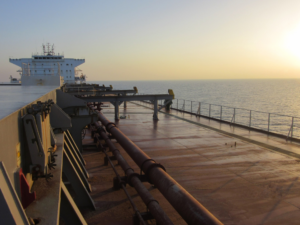
After the ‘historic’ announcement of the India-Middle East-Economic Corridor (IMEC) by the world leaders of the United States, India, Saudi Arabia, the United Arab Emirates, France, Germany, Italy and the EU at the G20 Leaders’ event on the Partnership for Global Infrastructure and Investment, Russian President Vladimir Putin on Tuesday reacted to the project, saying that it will only benefit Moscow.
“I believe this will only benefit us. I think this will only help us to develop logistics. Firstly, this project has been discussed for long, for as much as several years,” said Putin in remarks at the Eastern Economic Forum (EEF) on Tuesday, as quoted by the TASS news agency.
The Russian President once again took a dig at the United States, saying that he does not “see much sense” from them to be involved in the major connectivity project – aside from maybe from the perspective of business interests.
“Meanwhile, the extra freight traffic along this route essentially supplements our North-South project. We do not see anything there that can somehow interfere with us,” Putin further said, mentioning that the trans-shipment of cargo in UAE or Saudi ports under IMEC are important for “entire project economics”.
The new corridor is expected to stimulate economic development through enhanced connectivity and economic integration between Asia, the Arabian Gulf, and Europe.
The IMEC will be comprised of two separate corridors, the east corridor connecting India to the Arabian Gulf and the northern corridor connecting the Arabian Gulf to Europe.
It will include a railway that, upon completion, will provide a reliable and cost-effective cross-border ship-to-rail transit network, to supplement existing maritime and road transport routes, enabling goods and services to transit to, from, and between India, the UAE, Saudi Arabia, Jordan, Israel, and Europe.
The White House in its announcement said “this landmark corridor is expected to stimulate economic development through enhanced connectivity and economic integration across two continents, thus unlocking sustainable and inclusive economic growth.”
This corridor will secure regional supply chains, increase trade accessibility, improve trade facilitation, and support an increased emphasis on environmental social, and government impacts.



